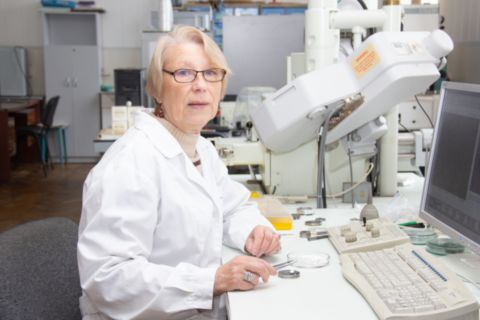The developers of the South Ural State University focused on economic efficiency, ease of production and use of new environmentally friendly sorbents, which will reduce industrial costs for cleaning contaminated water by tens of times.
Before industrial wastewater enters the aquatic environment and soil, it undergoes preliminary multi-stage purification at the enterprise from high concentrations of toxic elements (manganese, copper, zinc, lead, nickel, arsenic, etc.). However, with low concentrations of pollutant cations (which are established by regulatory requirements for industrial wastewater when discharged into natural water bodies), the equipment cannot cope without expensive auxiliary units.
The research team of the Departments of Materials Science and Physical Chemistry of Materials and Construction Materials and Products of SUSU has developed unique sorbents for post-treatment of industrial wastewater from small concentrations of pollutants. Made from natural materials, such sorbents are becoming an environmentally friendly, cost-effective and more efficient alternative to special equipment costing tens of millions of rubles.
The university's material scientists have produced a granulated composite sorbent from natural raw materials based on silicates and calcium aluminosilicates. This sorbent is designed to clean waste and storm water from man-made contaminants, as well as to rehabilitate natural reservoirs. The developed material is more effective than standard filtration methods, since it can completely clean water from inorganic and organic compounds in a wide range of pollutant ion concentrations. No technological operations with chemical reagents are required to activate the sorbent surface, which prevents secondary environmental pollution. The deep water purification process is implemented by two mechanisms: ion exchange and epitaxial deposition.
In the process of developing sorbents, scientists created a new structural form from natural silicates and aluminosilicates of calcium and magnesium. It turned out that the selected combination of components provides a unique mechanism for the operation of the granules.
"When granules fall into contaminated water, atoms begin to move inside them," explains Tatyana Lonzinger, Associate Professor of the Department of Materials Science and Physical Chemistry of Materials at SUSU. "This is facilitated by chemical elements in the water - they change the energy on the surface of the granules, causing the sorbent atoms to begin to move and enter the water that needs to be purified. Pollutants are attracted to the vacated cells inside the granule, integrating into the solid crystal lattice of the material. After all the heavy metal cations have been integrated into the structure of the granules, the calcium atoms will return from the solution to the surface of the material and seal the pollutants inside. It is impossible to extract pollutants from the granules under normal conditions, which means that secondary pollution of the environment is excluded - such spent granules are absolutely safe and do not need to be disposed of."
The new calcium aluminosilicate-based sorbent has another important advantage: it removes heavy metals from water in a comprehensive manner, rather than selectively (like known sorbents), and its effectiveness does not depend on the concentration of pollutants.
In combination with a composite sorbent, scientists have manufactured a granulated alkalinity regulator based on magnesium aluminosilicates. Working together with a new calcium sorbent, the alkalinity regulator increases the efficiency of the filter material. The fact is that some pollutants (for example, manganese) can be removed from water only at high values of the hydrogen index (pH) in water. To increase the pH of purified water, liquid alkali is used today, which is expensive (it is necessary to use special stable materials and equipment) and requires special precautions during its transportation, storage and use. Soluble granules for alkalinity regulation are environmentally friendly, inexpensive and highly efficient: the material doubles the degree of absorption of heavy metal cations during water purification, and at the same time eliminates the stage of expensive and harmful reagent (chemical) activation of inorganic sorbents; reduces the amount of equipment required for the preparation and supply of reagents, reducing operating costs. In addition, the required amount of granular alkalinity regulator is only 0.3-7% of the mass of the filter material.
New alkaline granules are applicable in the technology of natural water purification for domestic and drinking water supply, for additional purification of domestic and industrial wastewater, as well as in thermal power plant water treatment systems. They can be used independently in pollutant precipitation technologies or in combination with a sorbent based on calcium compounds.
Sorption materials are being developed by university scientists within the framework of the Priority 2030 program under strategic project № 3 “Ecoenvironment of post-industrial agglomeration”.




